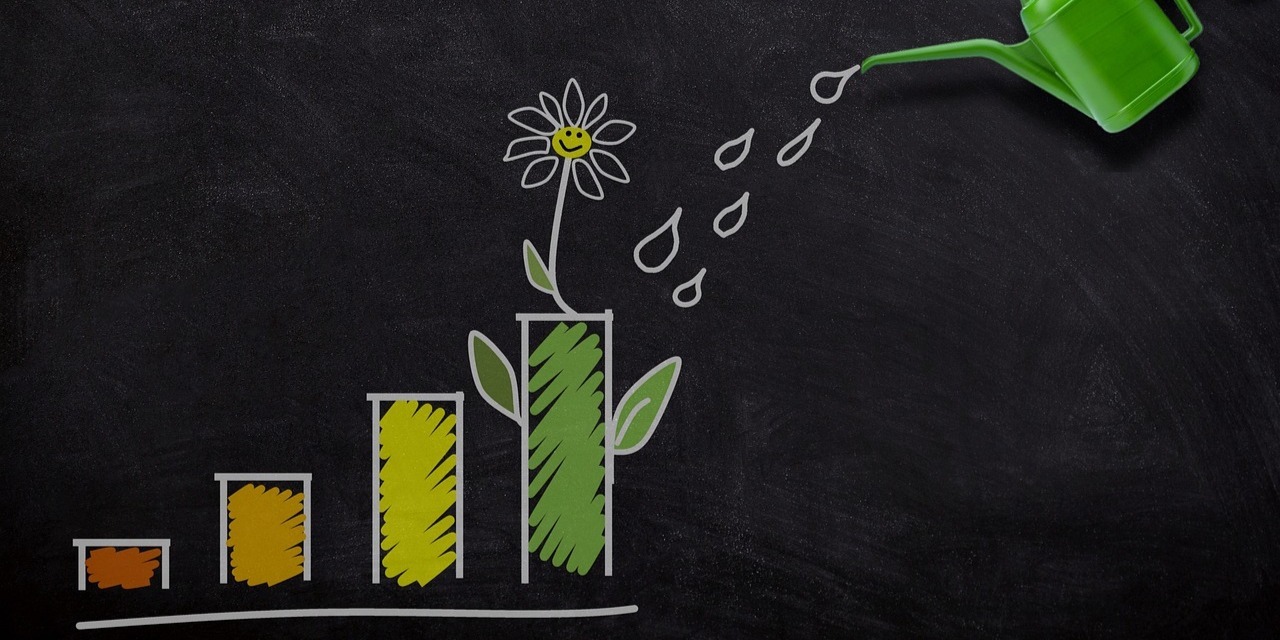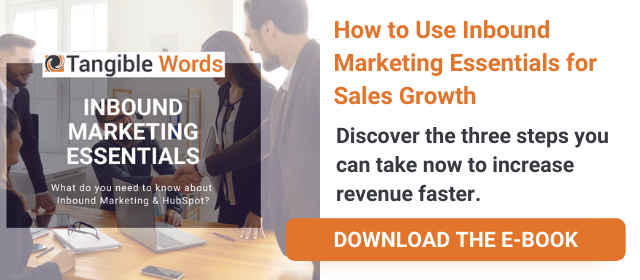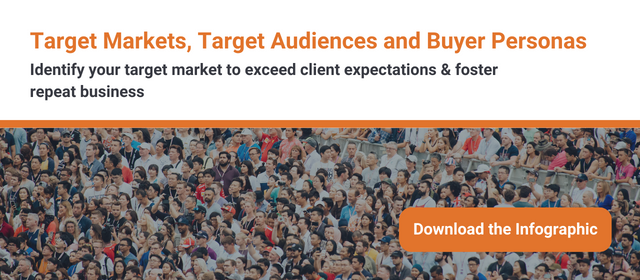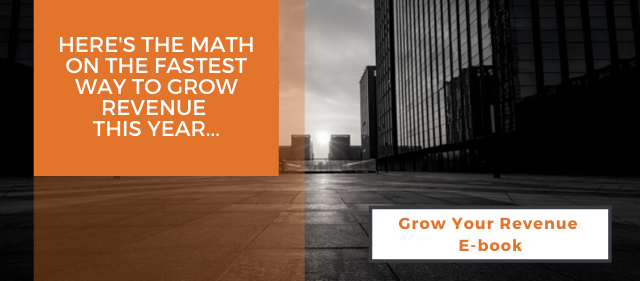SHARE
What Is Digital Marketing? Your Tool for a More Profitable Business

What is digital marketing? The short answer is this: digital marketing is a practice that uses technology to reach your target audience. When your ideal customer has eyes on your product or service, the result is more sales and more profit.
Does digital marketing mean you can’t use printed posters, brochures, magnets, or flyers? Not necessarily – that choice is yours. The beauty of digital marketing is that it can complement print campaigns or encompass your entire marketing focus. You decide what your audience responds to and how you want to spend your marketing budget. But before we get ahead of ourselves, let’s talk about what digital marketing can do for your business's bottom line.Where do you see digital marketing strategies playing out? On any digital channels your customers use to find your product. Digital marketing harnesses the power of search engines, social media, email, and websites to connect with current and prospective customers.
The most significant difference between digital and traditional marketing methods is that you can engage with your target audiences in real time and offer interactive and personalized experiences. So, not only do you know how your customers are finding you, but you can dig deeper to find out why they’re finding you – and use that information to build more digital marketing campaigns (we’ll get into data-driven strategies later). Digital marketing brings new customers to your door and fosters customer loyalty so they keep coming back to you.
Your business benefits from unique digital marketing strategies because your tailored content – and the strategies you use to share that content – is aimed at your best customer options. Uniquely created digital content performs best when it reflects your business offerings, expertise, and trustworthiness and continuously builds your business reputation around your successes.
As you can see, digital marketing is not a one-size-fits-all endeavour – that’s why digital marketing expertise is important. Traditionally trained marketers might focus on the content but not maximize it across different online platforms to create a pathway for the buyer's journey. This can lead to missed opportunities to reach highly engaged customers. Luckily, you can learn how to transition to digital marketing, giving your in-house marketers new superpowers.
Digital marketing is closely aligned with inbound marketing. With this type of marketing, you bring your customers to you rather than banging on doors, mass mailing, spamming, or cold-calling to find them. In other words, you don’t have to convince them to check you out with a sales pitch; you provide helpful content that answers their questions and solves their problems before you even call or email them. You’ve shown them you have what they want. The technology that allows you to distribute digital content has removed boundaries – like location – and made inbound marketing strategies easier to execute to reach more prospective buyers.
With digital marketing, a significant part of the sales work is done by the consumer. And this is a good thing. When customers do the research themselves, by the time they reach out to your sales reps, get a demo, or fill their cart, they know you’re the top pick. So you’ve still sold them on your product or service, but you've done it by offering the right content at the right time when they’re looking for decision guidance – not with high-pressure tactics that fewer and fewer people respond to anymore.
What Is Digital Marketing Good for? Efficiency & Profit
Digital marketing is cost effective.
Buyers spend a significant portion of their day online, and once a business builds a strong online presence, staying relevant is much easier and less time-consuming. Using marketing strategies, you can quickly change up campaigns that aren’t working without spending more money. You just need to pivot your thinking and try another angle. With digital marketing, your content is reusable in many formats, so you’re not reinventing the wheel each time. You’re just putting the wheel where your clients will see and use it.
Another digital marketing efficiency is that you can create different campaigns around topic-related content. Then, these campaigns will be targeted to specific user groups or personas. While targeted campaigns are not new, digital content marketing makes it easier to delineate your audiences (personas) and create specific campaigns to reach each one. The beauty of digital content campaigns is the ability to connect content across multiple platforms that carry the same message with the appropriate tone for each media.
Persona-focused campaigns help your business connect with your target audience in a more personalized way, nurturing leads rather than hunting them down. Digital marketing also offers the flexibility to reach audiences globally. For small and medium-sized enterprises, digital marketing levels the playing field when competing with more prominent organizations that historically have had more marketing money and reach.
High-performing digital marketing strategies can enhance brand visibility, foster customer loyalty, and drive sales growth within a manageable budget. So, you get a bigger bang for your buck when you invest in digital marketing experts and software.
3 More Ways Digital Marketing Saves You Money
1. Leveraging Social Media for Customer Engagement
Social media has opened up new ways businesses can interact with their customers because it allows businesses to access audiences directly and communicate in real time. It’s easy to share content and quickly learn what content resonates, so you can modify your strategies.
Even better, from a customer service perspective, you can respond promptly to inquiries and address concerns as they happen. Knowing there are issues and acting to fix them quickly – and publicly – helps keep your customers happy and shows prospective buyers that you are engaged and willing to acknowledge and correct mistakes. This goes a long way toward building your reputation and authenticity, encouraging consumers to buy from you.
2. Reaching Highly Engaged Leads Using Email Marketing
Email marketing remains one of the most powerful tools in digital marketing because it offers a direct line of communication to your audience. Even more so than social media, email lets businesses hone their personalization and vie for attention in the less competitive ring – the buyers' inboxes. Email marketing makes it easier to convert leads because in order for you to gain access to clients' emails, the client must agree to let you send them relevant material (anti-spam legislation is a great equalizer for businesses and a huge safety net for consumers). So, if the client has given you their contact information, you’ve proven to them that your business is worthy of more connection.
Having direct access to a potential buyer via email opens up opportunities for your sales team to show how your business can solve problems and to brainstorm with the client to find out what will suit them best. You’re working more intelligently to make a sale that will work for the client, leading to a better chance for conversion now and loyal consumerism going forward.
3. Using the Right Words to Catch Your Audience’s Eye
Search engine optimization (SEO) is still very important in the digital marketing realm. While the rules change regularly, there is always a need to use the correct language for your business and your audience. SEO used to mean optimizing your website and content to rank higher on search engines like Google. Now SEO can match AI prompts and voice and visual searches, so more than ever your content needs to fit with your audience preferences.
Ensure your messages include language commonly used in searches and images that accurately represent what you’re selling. By understanding the keywords your audience is searching for and incorporating them naturally into your content, you can improve your online visibility. More visibility means you’ll reach a wider target audience, thus increasing the chance that better qualified leads will connect with your business.
Digital Marketing and AI
AI-powered tools make digital marketing more efficient and cost effective. When you spend less staff time on each campaign, you’re saving money while increasing your chances of making sales.
AI-powered tools can help you write your content and make it easier to use that content across different platforms with tone tweaks. AI can analyze large datasets to uncover insights about consumer behaviour, allowing you to make data-driven decisions (like reworking underperforming content to match user preferences). AI can also automate repetitive tasks, such as email campaigns and social media postings, freeing marketers' time to focus on strategy and creativity. More efficiently created content that can be shared widely with potential buyers increases your chances of reaching an engaged audience ready to buy.
What Can a Digital Marketing Agency Do That My Marketing Department Can’t?
It’s not that your marketing team can’t do all the things a digital marketing agency can – digital content marketing is learnable – it's that they might not be able to get started and understand all the nuances of the strategies and software. When you outsource your marketing to a digital marketing agency, they can get your marketing process set up and leave your team with the tools to carry on. Or they become an extension of your marketing team, providing long-term support and jumping in when things get hectic.
Here’s what a digital marketing agency can add to your marketing success:
-
Digital marketing teams usually have excellent content creators specializing in high-quality, relevant content that provides value and encourages interaction. Content is king – albeit ever changing – and in digital marketing, content management is crucial for keeping your content working for you. Digital marketing agencies have the tools to help businesses plan, create, and distribute content efficiently.
-
They are experts at using digital marketing tools – such as HubSpot. These tools ensure marketing efforts increase sales through persona creation, website design, campaign setup, and task automation. Expert guidance on using these tools properly increases your ROI on the software because the knowledge keeps paying off in more customer engagement and purchases.
-
They’ll help you keep buyers around for the long haul. They know which customer lifetime value strategies are proven to work because they use them time and time again. And they know that while acquiring new customers is important, retaining existing ones is equally crucial for business success.
-
They get the numbers. Gathering and analyzing feedback and monitoring customer engagement and satisfaction requires knowing what the numbers mean and how to use the data to your advantage. Data helps you understand what makes consumers happy. A happy customer is more likely to become a repeat buyer and advocate for your brand, providing valuable word-of-mouth marketing and contributing to long-term profitability.
Now that we’ve answered the question “What is digital marketing,” why not move on to talking to a digital marketing expert who’s ready to help you build your business?
Sales Growth and Digital Marketing Go Hand in Hand. Find out How So You Can Reach Your Profit Goals
Topics
- Content Creation (297)
- Growth-Driven Design Websites (167)
- Inbound Marketing (144)
- Sales Growth (131)
- Tangible Words (111)
- Search Engine Optimization (85)
- Social Media Marketing (83)
- Blogging for Business (75)
- Hubspot (75)
- Economic Development (64)
- Events & Training (60)
- Company Growth Podcast (49)
- Manufacturing (47)
- Tourism (46)
- Email Marketing (42)
- Case Stories (40)
- Testimonials & Client Feedback (36)
- Education and SaaS (23)
- Google (21)
- Careers (19)
- Inbound Marketing Agency (19)
- Cool Companies (18)
- FAQ (16)
- Alysha Dominico (13)
- Associations (7)
- Food and Beverage (7)
TW Blog Sign-Up
Learn more about how to grow your business and improve your sales team process.









